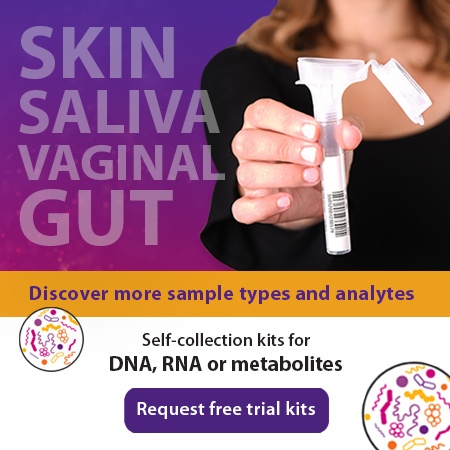2017-09-21
The human microbiome is one of the hottest topics of interest in the scientific community. The microbes in and on a healthy human adult are estimated to at least equal the number of human cells [1], which highlights the need for the scientific and medical community to better understand the broader impact on health and susceptibility to certain diseases/conditions and chronic illnesses. In particular, the gastrointestinal microbiome has captured the attention of researchers with stool specimens offering the most accessible means of assessing the gut microbial community [2]. However, there are few publications that focus on methods for collecting stool samples for large, population-based studies.
One recent publication, titled ‘Successful collection of stool samples for microbiome analyses from a large community-based population of elderly men’, took an in-depth look at the collection of stool samples from a large number of older men enrolled in the Osteoporotic Fractures in Men Study (MrOS). Dr. Eric Orwoll from the Oregon Health and Science University led the research team and we asked him why he added a microbiome component to this study cohort.
Dr. Orwoll commented: “There are animal data that very clearly implicate the gut microbiome in the control of bone mass, and in the effect of hypogonadism on bone loss. And, of course, there are data that suggest that the gut microbiome changes with age, obesity, diabetes and other situations associated with changes in bone density. However, there are still no studies in humans that effectively examine whether variation in the microbiome is associated with bone density or osteoporosis. That's primarily what motivated the collection of fecal samples in almost 1000 older men in the MrOS Study.”
This study used OMNIgene•GUT stool collection kits for at-home sample acquisition, transportation and preservation. The samples will be processed and analyzed to investigate the associations of the microbiome with a number of age related conditions.
Here is a brief summary of the findings:
- 1328 men were asked to provide stool samples, 982 agreed to participate and 951 submitted samples, resulting in very high participation and compliance rates, 74% and 97% respectively.
“The DNA Genotek OMNIgene collection kit was accepted well by the participants who were surveyed, and the process of sample transfer by mail was uniformly successful.[2]”
- Alternative stool collection methods such as sample collection at a central clinic followed by immediate processing or at-home sample collection with sample freezing and shipping to the lab were available but due to inconvenience, they were not used for this project.
“Since the OMNIgene collection method involves rapid stabilization of nucleotides without freezing, the approach we describe offers a more acceptable alternative. As well, it may yield a lower cost compared to the shipment of frozen samples…[2]”
- The DNA obtained from the OMNIgene samples was well preserved and very suitable for analysis, similar to the results provided in other recent publications[3],[4],[5],[6].
“The stabilized samples were found to be superior to those either frozen or immediately processed in terms of amounts of DNA recovered and equivalent in terms of the results of whole genome sequencing.[2]”
We asked Dr. Orwoll about his experience with OMNIgene•GUT for this study, these were his impressions:
“The OMNIgene collection process really enabled this large-scale, community-based sample collection in older people. It was effective and convenient to have men collect the specimens at home and mail them. It was well accepted by the participants. We would not have been able to collect these samples if the participants had been required to come in to the clinic.”
The success of this research highlights how OMNIgene•GUT can be used to collect and snapshot high quality stool samples from research participants and achieve a high compliance rate.
Are you thinking of trying OMNIgene•GUT for yourself? Click below to request samples for evaluation purposes.
References
[1] R.Sender, S. Fuchs, R. Milo, Are we really vastly Outnumbered? Revisiting the ration of bacterial to host cells in humans, Cell 164 (3) (2016) 337-340.
[2] Abrahamson, M. et al. Successful collection of stool samples for microbiome analyses from a large community-based population of elderly men. Contemp Clin Trials Commun. 7:158-162 (2017).
[3] C. Mathay, et al.Method optimization for fecal sample collection and fecal DNA extraction, Biopreserv. Biobank, 13 (2) (2015), pp. 79-93
[4] J.M. Choo, L.E. Leong, G.B. RogersSample storage conditions significantly influence faecal microbiome profiles, Sci. Rep., 5 (2015), p. 16350
[5] E.L. Anderson, et al.A robust ambient temperature collection and stabilization strategy: enabling worldwide functional studies of the human microbiome, Sci. Rep., 6 (2016), p. 31731
[6] S.J. Song, A. Amir, J.L. Metcalf, K.R. Amato, Z.Z. Xu, G. Humphrey, R. KnightPreservation methods differ in fecal microbiome stability, affecting suitability for field studies, mSystems, 1 (3) (2016), 10.1128/mSystems.00021-16, e00021-16


